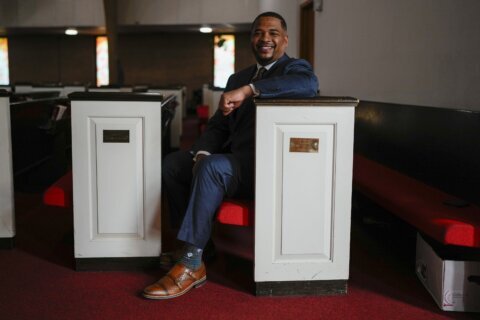FARGO, N.D. (AP) — A North Dakota police investigator violated state law by confiscating a local radio journalist’s cellphone without a valid warrant and has been forced to return the device, the state’s attorney general said Wednesday.
Tom Simon, 62, who works for Williston Trending Topics News Radio Live and Coyote Radio 98.5, had been reporting on closed-door meetings concerning the departure of an embattled school district superintendent that are subject to an investigation by Williston police.
At one such meeting on Monday, Charissa Remus, an agent for the North Dakota Bureau of Criminal Investigation, asked Simon to identify his sources then demanded that he hand over his phone. Fearing arrest and unsure of his rights, Simon handed it over.
Under North Dakota’s shield law, information obtained by a journalist cannot be seized without a court hearing to determine if the withholding of that information would cause a miscarriage of justice. No such hearing was held.
Remus had filed an affidavit saying she had reason to believe the phone contained evidence of a crime. Northwest District Judge Benjamen J. Johnson signed a search warrant based on that affidavit that identified Simon’s phone by number only.
Simon’s attorney, Kevin Chapman, requested a copy of the affidavit but had not received one as of Wednesday afternoon. Johnson declined to comment.
An attorney for the North Dakota Newspaper Association subsequently contacted the office of Attorney General Wayne Stenehjem, who ordered the return of Simon’s phone. Stenehjem told The Associated Press that the BCI issued warrants for a “variety of cellphones” in this case and “some were unaware that Simon was protected by shield law.” Simon’s phone was not examined, he said.
Stenehjem said the BCI is often asked to help police and sheriff’s departments, but generally the cases involve high-profile crimes such as drug dealing, child pornography and human trafficking.
“We assist local law enforcement. That’s what BCI is,” Stenehjem said. “If there are conflicts on the local level, we try to accommodate.”
Simon, who describes himself as a reporter “who does news the old-fashioned way,” said he did not receive an apology and that “the people” deserve one for what he characterized as an attempt to intimidate reporters and their sources.
“When you do this kind of thing, it has a chilling affect,” Simon said. “What it says in essence is that if you talk to Tom Simon, the reporter, here’s what’s going to happen to you. That is very dangerous for the reporter and the public because the public has the right to know what’s going on with their elected officials.”
Copyright © 2024 The Associated Press. All rights reserved. This material may not be published, broadcast, written or redistributed.







